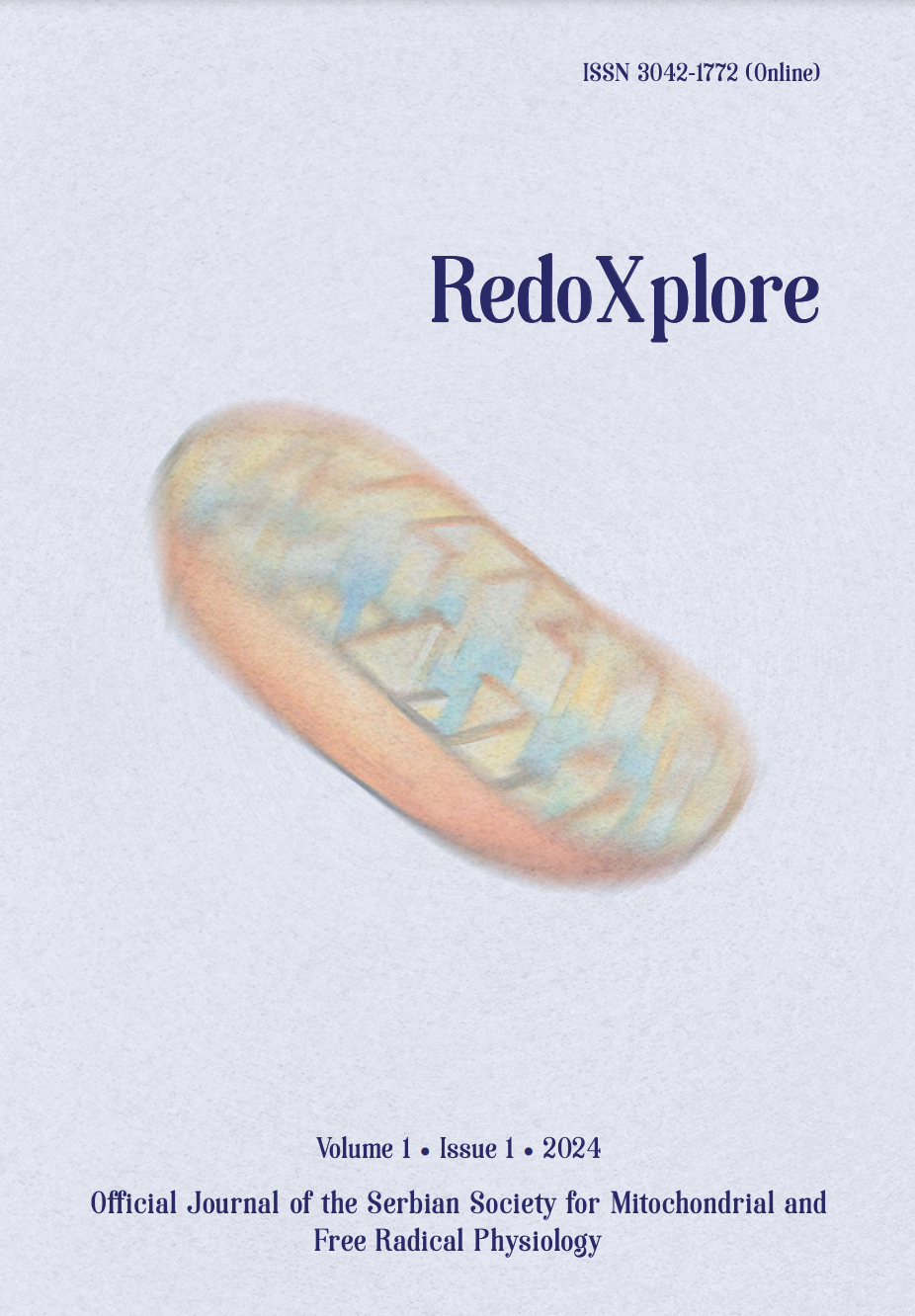Current issue

Volume 1, Issue 1, 2024
Online ISSN: 3042-1772
Volume 1 , Issue 1, (2024)
Published: 29.08.2024.
Open Access
All issues
Contents
29.08.2024.
Professional paper
EFFECTS OF CHRONIC COLD EXPOSURE ON ANTIOXIDANT DEFENSE IN BROWN ADIPOSE TISSUE AND LIVER OF AGED RATS
Aging is a natural process characterized by a decline in organic structure-function and an increase in mortality over time. While many exogenous and endogenous factors contribute to aging, the long-term effects of low environmental temperature have been poorly described. To address this, our study compared 24-month-old male Mill Hill hybrid hooded rats raised at a standard temperature of 22±1°C with age-matched rats that were kept in a cold room (4±1°C) from the age of 6 to 24 months. 3- and 6-month-old rats raised at 22±1°C were included as room temperature controls. We examined two metabolically active organs, interscapular brown adipose tissue (iBAT) and liver. It was found that 24-month-old rats chronically exposed to cold exhibit increased food consumption, which may be attributed to a higher metabolic demand. Chronic exposure of aged rats to low environmental temperature led to an increase in iBAT relative mass, total glutathione (GSH) content, and antioxidant defense (AD) enzyme activity: CuZn superoxide dismutase, Mn superoxide dismutase, catalase, glutathione peroxidase, and thioredoxin reductase. Respirometric analysis further demonstrated an increase in mitochondrial uncoupling in iBAT in 24-month-old rats kept at 4±1°C. Conversely, there was no change of the same parameters in the liver, which maintained consistent AD enzyme activity and GSH content across all experimental groups. Our study confirms that iBAT of aged rats remains responsive to stimulation by low environmental temperature, supporting thermogenic processes through uncoupling and a robust increase in the AD system. These results highlight tissue-specific effects of chronic cold exposure on aged rats underlying acclimation-driven physiological changes.
Strahinja Djuric, Tamara Zakic, Aleksandra Korac, Bato Korac, Aleksandra Jankovic
29.08.2024.
Professional paper
THE ROLE OF NRF2-DEPENDENT METABOLIC REPROGRAMMING OF BROWN ADIPOSE TISSUE IN ORTHOTOPIC BREAST CANCER MODEL
Breast cancer is characterized by specific metabolic changes that support tumorigenesis, highlighting the emerging appreciation of cancer as a metabolic disease. These metabolic changes are simultaneous with redox reprogramming with nuclear factor erythroid 2-related factor 2 (Nrf2) representing their master integrator. Given that interscapular brown adipose tissue (IBAT) influences whole-body metabolism, our goal was to investigate the redox-metabolic crosstalk between the tumor and the host at the systemic level by exploring Nrf2-driven metabolic changes that occur in IBAT in the orthotopic model of breast cancer in wild-type (WT) and mice lacking functional Nrf2 (Nrf2KO). We analyzed the protein expression of key enzymes involved in glucose and lipid metabolism in control groups and at different points during tumor growth (10 mg, 50 mg, 100 mg, 200 mg, and 400 mg). In both WT and Nrf2KO mice, the results indicated a transient induction of hexokinase 2 expression during the early phase of tumor growth (<100 mg). Accordingly, pyruvate dehydrogenase expression followed the same profile. In Nrf2KO mice, a general decline in glyceraldehyde 3-phosphate dehydrogenase, phosphofructokinase-1, and glucose-6-phosphate dehydrogenase expression was detected during the late phase of tumor growth (>100 mg). Since no changes in WT mice occurred, these findings are considered Nrf2-dependent. Concomitantly, a decrease in protein expression of fatty acid synthase and acetyl-CoA carboxylase in Nrf2KO mice was observed. These observations correspond to decreased levels of 5'-AMP-activated protein kinase and hypoxia-inducible factor 1 during the late-phase (>100 mg) of tumor growth in Nrf2KO mice which suggests their involvement in transcriptional regulation. Our results revealed that IBAT metabolism responds to tumor growth and underscored that this communication is Nrf2-dependent giving implications for further understanding of breast cancer in the light of systemic metabolic disease.
This research was supported by the Science Fund of the Republic of Serbia, #7750238, Exploring new avenues in breast cancer research: Redox and metabolic reprogramming of cancer and associated adipose tissue - REFRAME.
Maja Vukobratovic, Strahinja Djuric, Jelena Jevtic, Tamara Zakic, Aleksandra Korac, Aleksandra Jankovic, Bato Korac





